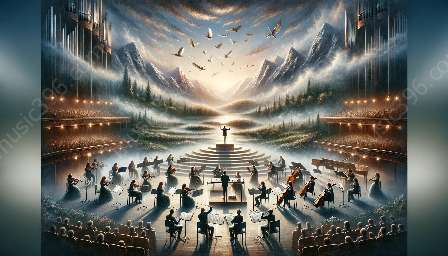Music education plays a vital role in the development of critical thinking and creativity. By allowing students to engage with music, whether through performance, composition, or analysis, music education cultivates essential skills and nurtures a creative mindset. This topic cluster will dive into the relationship between music education and critical thinking, creativity, and more, while also integrating music classification and terminology as well as references to pertinent research and resources.
Understanding Critical Thinking in the Context of Music Education
Critical thinking is the ability to analyze, synthesize, and evaluate information to make informed decisions and solve problems effectively. In the context of music education, developing critical thinking involves various elements, such as:
- Listening and Analyzing Music: Through exposure to diverse musical styles and genres, students learn to critically listen and analyze the elements of music, such as melody, harmony, rhythm, and form. This process develops their ability to discern patterns, structures, and nuances within music, fostering critical thinking skills.
- Understanding Context and History: Music education provides students with a historical and cultural framework to understand the evolution of music. By exploring the social, political, and artistic contexts in which music is created, students develop the critical thinking skills necessary to interpret and contextualize musical works.
- Engaging in Musical Problem-Solving: Whether it's mastering a challenging passage on an instrument or composing a new piece of music, students are constantly engaged in musical problem-solving. This process encourages them to think critically, experiment with different approaches, and reflect on their creative decisions.
Fostering Creativity through Music Education
Creativity is the ability to generate novel ideas, approaches, and solutions. Music education provides a fertile ground for fostering creativity by:
- Encouraging Musical Expression: Through performance, improvisation, and composition, students are encouraged to express themselves musically. This freedom of expression nurtures their creativity and empowers them to explore their unique musical voices.
- Exploring Diverse Musical Resources: Music education exposes students to a wide range of musical traditions, styles, and resources. By immersing themselves in diverse musical experiences, students broaden their creative palettes and draw inspiration from a rich tapestry of musical influences.
- Promoting Collaborative Music-Making: Collaborative music-making, such as ensemble playing or group composition projects, cultivates a supportive environment for creativity. Students learn to work together, exchange creative ideas, and synergize their musical contributions, leading to innovative and imaginative outcomes.
Integrating Music Classification and Terminology
An understanding of music classification and terminology enriches the music education experience by:
- Categorizing Musical Elements: The classification of musical elements, such as instruments, voices, and musical forms, provides a systematic framework for organizing and understanding music. This knowledge facilitates a deeper comprehension of musical works and enhances critical thinking skills.
- Developing a Common Language: Music terminology offers a shared vocabulary for discussing musical concepts, techniques, and structures. By familiarizing students with terminology, music educators facilitate clear communication and coherent discussions, supporting the development of critical thinking and analytical skills.
- Connecting Theory and Practice: Music classification and terminology bridge the gap between theoretical concepts and practical application. Through the application of terminology in musical analysis and performance, students develop a holistic understanding of music, fostering critical thinking and musical fluency.
Exploring Music References
References to pertinent research, scholarly articles, and educational resources enhance the depth and breadth of music education by:
- Providing Access to Research: References to scholarly articles, publications, and academic resources offer valuable insights into the latest developments in music education, pedagogy, and cognitive psychology. Engaging with research helps educators refine their teaching methods and empowers students to explore music from an informed perspective.
- Enriching Learning Materials: Music references can include textbooks, digital libraries, and multimedia resources that augment students' learning experiences. Access to diverse materials broadens students' exposure to musical styles, historical contexts, and academic discourse, fostering a more comprehensive understanding of music.
- Fostering Lifelong Learning: By introducing students to reputable resources and references, music education instills a sense of curiosity and lifelong learning. Encouraging students to explore music beyond the classroom cultivates a culture of intellectual inquiry and continuous improvement.
Embracing the Intersection of Music Education, Critical Thinking, and Creativity
Music education serves as a dynamic platform for developing critical thinking and creativity. By integrating music classification and terminology, along with leveraging relevant references, educators can enhance the holistic learning experience and empower students to become discerning, imaginative, and informed musicians.









































